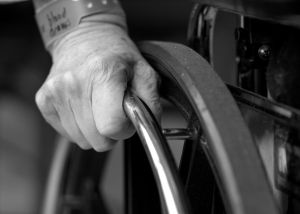Alzheimer’s patients, to put it delicately, can be difficult. Take Margaret Nance. The 96-year-old, stricken with Alzheimer’s, would often hit staff members and refuse to eat at her previous nursing home. That was until she moved to Beatitudes nursing home, located in Arizona.
Patients are given whatever they want at this non-traditional nursing home. Whether it be a candy bar or a cocktail before bed, “whatever your vice is, we’re your folks,” said Tena Alonzo, director of research at Beatitudes.
No doubt, this nursing home is unlike any other. Giving into the patients’ wishes is not a common procedure at other homes.
“The state tried to cite us for having chocolate on the nursing chart,” Alonzo said. “They were like, ‘It’s not a medication.’ Yes, it is. It’s better than Xanax.”
New research suggests that making the patients as happy as possible is the best way to treat Alzheimer’s. Creating positive emotional experiences for Alzheimer’s patients will rid them of their desolation and behavioral problems.
Currently, there is no effective medical treatment for Alzheimer’s, and proper caregiving is the only therapy for dementia.
“There’s actually better evidence and more significant results in caregiver interventions than there is in anything to treat this disease so far,” said Lisa P. Gwyther, education director for the Bryan Alzheimer’s Disease Research Center at Duke University.
Recently, congress passed the National Alzheimer’s Project Act, and President Obama is expected to sign the act into law. The act will create an advisory council of representatives to research all aspects of aging.
The council will work to “accelerate the development of treatments that would prevent, halt or reverse the course of Alzheimer’s” and “improve the early diagnosis of Alzheimer’s disease and coordination of the care and treatment of citizens with Alzheimer’s.”
Also Read:

